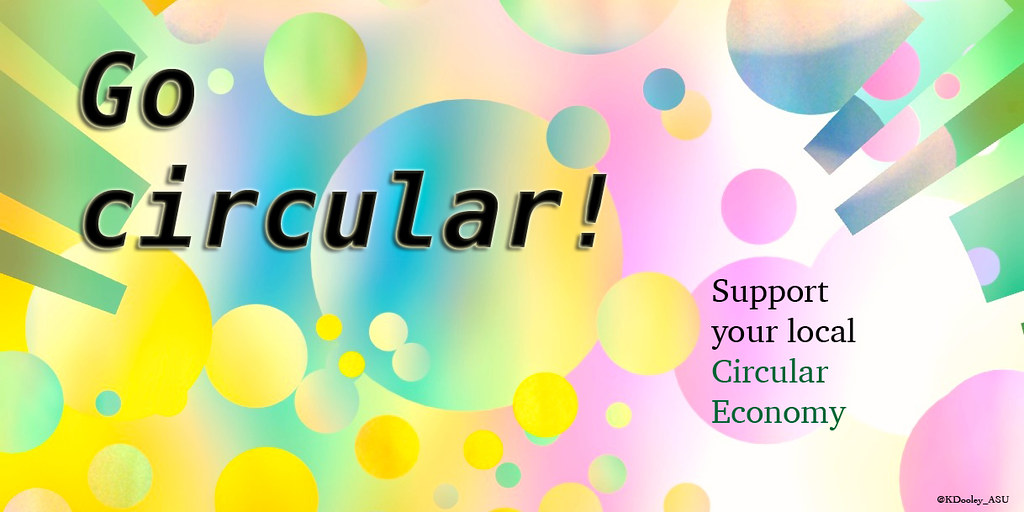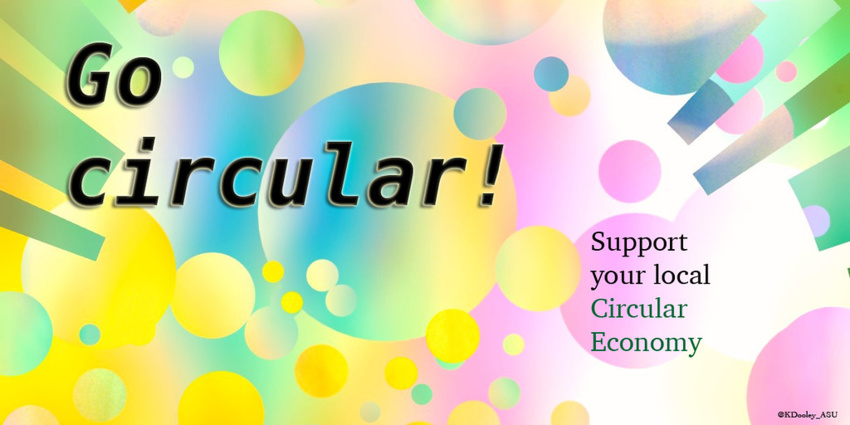We are constantly looking for new ways to innovate in order to maintain the value of plastic materials throughout their life cycle. Every day, our scientists and researchers work to design for recyclability and rethink how we can give used plastics a new lease on life that would otherwise be destined for landfill or incineration.
A circular economy is based on the reuse of materials, which protects our planet's most valuable resources. These circular solutions are made possible by collaboration with like-minded partners, as well as a thorough understanding of value chain drivers that demonstrate consumer desires and meet increased demand for companies to use more recycled materials in their products.
To address the challenges at hand, it is necessary to put in place the right people and partnerships - from NGOs to recyclers to brand owners - as well as all value chain partners working together with their respective sets of expertise and resources.
“When I retire from Dow, I want to leave behind 30,000 people excited about sustainability because of what we have been able to achieve as a business." said Jill Martin Ph. D
A future founded on science
Jill Martin, Dow's Global Sustainability Fellow, has worked hard to raise market awareness and technology expertise needed to reclaim the value of plastics. In fact, she became interested in the management and recovery of end-of-life packaging and other plastic materials as a teenager after establishing a recycling program in her community; later in graduate school, she worked on a project to develop more efficient strategies for blending commonly recycled materials, such as polyethylene.
This early, long-held interest in sustainability fuels her current work with Dow to grow a circular economy and develop carbon mitigation strategies to meet the needs of sustainable markets and consumers. Martin is very much about the "economy" part of the "circular economy," recognizing how the time and cost investment in developing new technologies and business models benefits the entire value chain.
Dow's circularity programs' success cannot be attributed to a single effort. We are always on the lookout for new partnerships and solutions to the multifaceted challenges of plastics circularity. This includes developing multigenerational strategies that rely on all aspects of the value chain.
Martin emphasizes the collaborative nature of circular innovation as a key factor in the journey ahead.
"What excites me most about this work is its longevity," she said. "If I were to leave Dow tomorrow, I would know that a generation of people would carry on the work we began to build the relationships and technologies required to drive circular, low-carbon solutions."
A circular economy is based on the reuse of materials, which protects our planet's most valuable resources. These circular solutions are made possible by collaboration with like-minded partners, as well as a thorough understanding of value chain drivers that demonstrate consumer desires and meet increased demand for companies to use more recycled materials in their products.
To address the challenges at hand, it is necessary to put in place the right people and partnerships - from NGOs to recyclers to brand owners - as well as all value chain partners working together with their respective sets of expertise and resources.
“When I retire from Dow, I want to leave behind 30,000 people excited about sustainability because of what we have been able to achieve as a business." said Jill Martin Ph. D
A future founded on science
Jill Martin, Dow's Global Sustainability Fellow, has worked hard to raise market awareness and technology expertise needed to reclaim the value of plastics. In fact, she became interested in the management and recovery of end-of-life packaging and other plastic materials as a teenager after establishing a recycling program in her community; later in graduate school, she worked on a project to develop more efficient strategies for blending commonly recycled materials, such as polyethylene.
This early, long-held interest in sustainability fuels her current work with Dow to grow a circular economy and develop carbon mitigation strategies to meet the needs of sustainable markets and consumers. Martin is very much about the "economy" part of the "circular economy," recognizing how the time and cost investment in developing new technologies and business models benefits the entire value chain.
Dow's circularity programs' success cannot be attributed to a single effort. We are always on the lookout for new partnerships and solutions to the multifaceted challenges of plastics circularity. This includes developing multigenerational strategies that rely on all aspects of the value chain.
Martin emphasizes the collaborative nature of circular innovation as a key factor in the journey ahead.
"What excites me most about this work is its longevity," she said. "If I were to leave Dow tomorrow, I would know that a generation of people would carry on the work we began to build the relationships and technologies required to drive circular, low-carbon solutions."


 A circular economic model
A circular economic model





 Companies
Companies